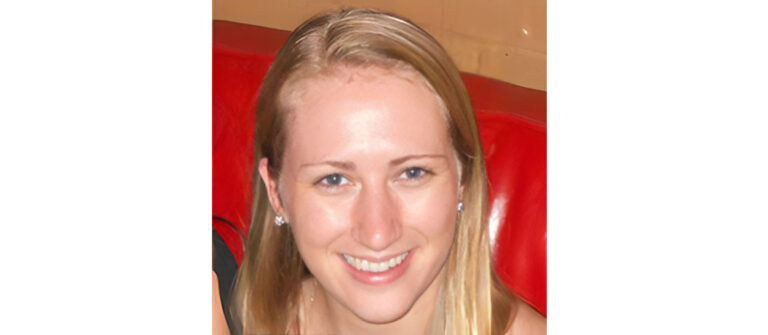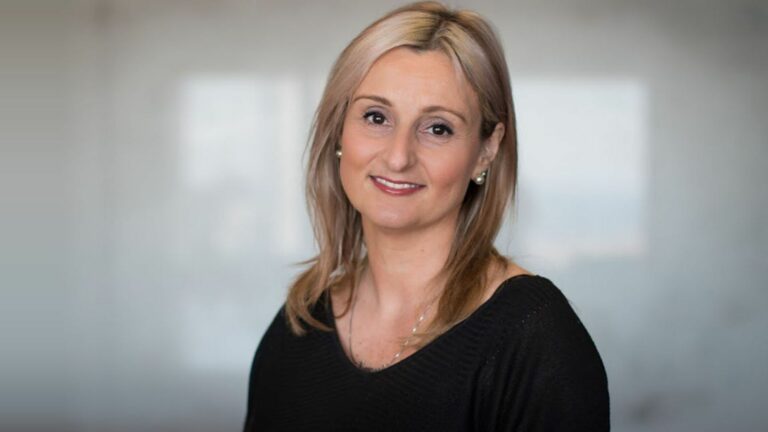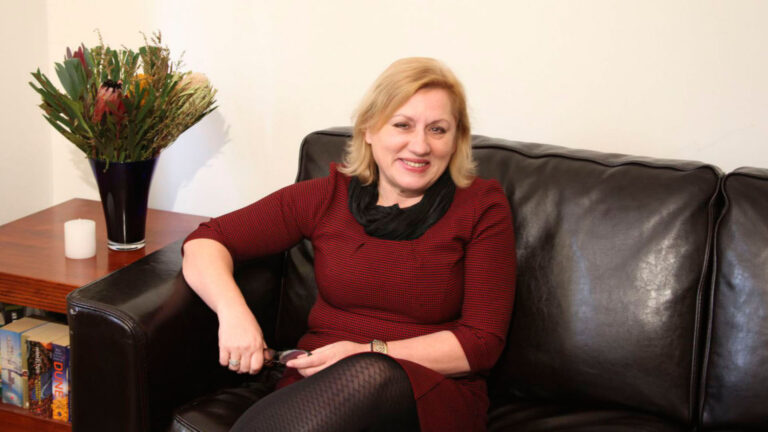In this Neos Kosmos article, the ‘Gaps in identifying and responding to IPSV: Monash University’ study reveals an alarming lack of training among professionals. AFMW president, A/Prof Magdalena Simonis was interviewed for comment. Key points:
- General practitioners are the most trusted other person outside of a close friend, or family member, that those suffering from DV would tell their story to.
- Women will not come up front and say I’m the victim
- Intimate partner violence ( IPV) does not always involve physical injuries
- Family violence and IPV includes a spectrum from coercion, financial control, emotional abuse, social isolation, sexual coercion and reproductive coercion
- In most cases, women are conditioned to tolerate certain behaviours
- Society / women are taught to believe that because a male partner is under stress, or going through a hard time DFV /IPV should be tolerated because when the ‘rough patch is over’, he’ll be back to his normal self.
The hidden reality of intimate partner sexual violence in family and Greek communities
Gaps in identifying and responding to IPSV: Monash University study reveals Alarming lack of training among professionals
There has been a record low public hospital performance, with patients waiting longer due to a system in logjam. There are multiple factors impacting this, resulting in close to 40 per cent of
The reality of intimate partner sexual violence (IPSV) affecting primarily women, is often shrouded in darkness. Feelings of shame, and the debilitating impact on self-worth that this violence creates, often stops victims from coming forward.
A paper released by Monash University calls on practitioners to be equipped with tools, and more training, that will allow them to identify and respond to IPSV.
‘Let’s talk about sex: exploring practitioners’ views on discussing intimate partner sexual violence in domestic and family violence perpetrator intervention programs sheds light on the issue through interviews with nearly 100 practitioners. The lead author Dr Nicola Helps, from the Monash Gender and Family Violence Prevention Centre, reveals gaps in identifying and responding to intimate partner sexual violence. There is a need to improve risk assessment and ensure practitioners are equipped to identify such perpetration.
Real gaps in identifying intimate partner sexual violence
Up to 25 per cent of the professionals surveyed reported not receiving any training on how to address intimate partner sexual violence.
Dr Helps said that recognising the signs of IPSV, can be difficult.

“IPSV is a serious form of abuse and can have a devastating impact on victims”, she told Neos Kosmos.
“It is vital that health and social welfare practitioners are equipped with the tools to assist those affected by IPSV and to help them access the appropriate services and support.”
Family and domestic violence and sexual violence behaviours intersect, “and intimate partner sexual violence often co-occurs alongside other forms of family violence and forms a part of a broader pattern of abuse.”
“Intimate partner sexual violence can generate a range of harmful psychological, emotional, and physical impacts.”
Intimate partner sexual violence leads to increased shame in women, along with clinically significant distress, struggles with self-esteem, body image, and overall lack of confidence.
“It is an exploitative violation of trust that happens when sexual violence is committed by an intimate partner.”
“This is the person who should be one of the most trusted people to the victim-survivor and the impact of that betrayal is significant,” Dr Helps added.

Cultural cohesion and family in Greek communities can hide an ugly reality
For Greeks, where the family and the community are paramount to both safety and identity, and shame is a profound cultural phenomenon, identifying IPSV becomes very complex.
Liana Papoutsis, an expert in family violence, with lived experience, also from Monash University says that family violence and IPSV intersect when it comes to research and data.
“In the Greek community, we need to first get over the whole taboo about family violence in general and intimate partner violence specifically.”
Papoutsis also points to elder abuse which is increasing in our community as another form of family violence on the rise in the Greek community.
“We have taboos, and we don’t talk about it, and I’m not talking about only first-generation migrants, but subsequent Greek-Australian generations as well,” Papoutsis said.
“I have worked with women who have disclosed sexual violence as part of the overall family violence experience, sometimes several years since it happened,” Papoutsis says.
The role of family, and community cohesion are important in “the literal survival of culturally and linguistically diverse communities” however she points out “the problem is that such behaviours hide many dark realities.”
“The cohesiveness of the Greek community and family are two pillars that we feel we need to have to survive. However, across the diaspora, including here in Australia, it is also where family violence and associated frictions are often seen”, Papoutsis says.

According to Dr. Helen Kalaboukas, a consulting psychologist who addresses various community issues, it is crucial to use appropriate tools as well to comprehend cultural differences and establish a trustworthy working rapport with clients. This emphasis on building a strong relationship is paramount in the field.
“This is where training is important and the gender of the practitioner, for example a woman many not open up to a male practitioner.”
Dr Kalaboukas believes that culture and social background are relevant factors, but ultimately, “most people can recognise when they feel mistreated, regardless of their cultural background.”
“A client will not tell me straight away that they are abused, but as a practitioner I need to develop a relationship with the client, and it is not often dependent on what specialist training the professional has, or what access the client has.”
Dr Helps emphasises the importance of culturally informed content and practitioner representation in perpetrator intervention programs. Practitioners interviewed in the study called for further training to improve responding to IPSV. Papoutsis and Dr Helps advocate for general practitioners to receive training on all forms of family violence, including IPSV, despite its incomplete understanding among healthcare professionals. Papoutsis says that unless a GP has “some insight into the nuances of IPSV and family violence, it’s not something that GP’s are generally screening for.”
“Many years in my own lived experience, my GP of 27 years did not have a clue about what had been happening to me.”
General Practitioners as a new frontline against FV and IPSV
Associate Professor Magdalena Simonis, a General Practitioner who also works for Safer Families at the Centre of Research Excellence at the University of Melbourne, concurs that GPs need better training. Her department is the only one “dedicated to the design and research of family violence in primary care.”
“We research family violence in the family for the primary care space and we provide and create education materials to train GPs and nurses, and nurse practitioners in family violence, ours is the first of its kind in the world and one of the best of its kind.”
Dr Simonis trains GPs and says that the programs have been created “by a team of experts”, including herself and Professor Kelsey Hegarty, the academic general practitioner who holds the joint Chair in Family Violence Prevention at the University of Melbourne and the Royal Women’s Hospital.

The program provides tools to GPs on family violence and IPSV and was developed in conjunction with the Royal Commission on Family violence, which made 227 recommendations to reduce the impact of family violence.
“It identified the significance of general practitioners as the most trusted other person outside of a close friend, or family member, that those suffering from DV would tell their story to.”
“In general practice we get to know our patients over a period and the research has shown that women will not come up front and say I’m the victim,” Dr Simonis said.
Dr Simonis agrees with Dr Helps who says that “sexual violence does not always involve physical injuries.”
There are different forms of violence, “it’s a spectrum from coercion, financial control, and emotional abuse; sexual coercion and reproductive coercion.”
Dr Simonis says that it’s not always a continuous perpetration of violence, “it can be intermittent” and it can also result in the death of a woman, and/or her children.
Up to 50 per cent of women who have longstanding intractable depression or anxiety are victims of family violence or intimate partner sexual violence. They can present with symptoms such as recurrent pelvic infections, pain recurrence, urinary tract infections, and unplanned pregnancies, according to Dr. Simonis.
“With respect to the presentation of women and victim survivors in primary care, in general practice they very rarely come to a crisis centre, with bruises and saying that ‘I’ve been attacked’, because most perpetrators usually do it over a long period of time, and in most cases, women are conditioned to tolerate certain behaviours,” Dr Simonis says.
Dr Simonis says that many women in the Greek community and other cultically diverse communities have been “culturally taught to tolerate certain behaviours and to think and express that because a male partner was under stress, or going through a hard time or he’s a good dad and therefore you know once that’s over, he’ll be back to his normal self.”
“Religious enculturation does teach you from a very early age that you need to sublimate some of that and forgive and women are made to feel that they are not worthy and that if they change their behaviour, if they ‘do the right thing’, they won’t upset their male partner,” she says.
Dr Simonis has translated the MARAM framework into a learning module for primary care, which is aimed at identifying family violence. The MARAM has been rolled out in Victoria since 2021 to include GPs and practice nurses in the scheme, and it aims to help healthcare professionals evaluate the level of risk by respectfully inquiring about the patient’s situation, their needs and referring them to relevant support services with their consent. According to the MARAM in Victoria GPs are now enabled by law to be part of the information sharing scheme.
“The family violence sharing scheme, and the child information sharing schemes enable GPs to work collaboratively across the sector to improve the lives and health outcomes for victims, survivors, and their children.”
Family violence and inmate partner sexual violence in Greek and all other communities is “the scourge of modern society,” Dr Simonis says.
Family violence and intimate partner sexual violence affect mainly women across all classes, cultures, and backgrounds.
Dr Simonis says that during the COVID-19 pandemic community support services were “overwhelmed by the surge in cases.”
To continue to address family and intimate partner sexual violence according to all experts requires a multifaceted approach that involves appropriate training and support to practitioners, especially GPs who are close to women and community.
Stop the cycle of violence. If you are concerned about your behaviour, or about someone using violence, call Men’s Referral Service on 1300 766 491, and for further information visit the websites below:
Find Monash University’s IPSV report here .
Source article and photo: Neos Kosmos
Associate Professor Magdalena Simonis AM is a Past President of the AFMW (2020-2023), former President of VMWS (2013 & 2017-2020) and current AFMW National Coordinator (2024-2026). She is a full time clinician who also holds positions on several not for profit organisations, driven by her passion for bridging gaps across the health sector. She is a leading women’s health expert, keynote speaker, climate change and gender equity advocate and government advisor. Magda is member of The Australian Health Team contributing monthly articles.
Magdalena was awarded a lifetime membership of the RACGP for her contributions which include past chair of Women in General Practice, longstanding contribution to the RACGP Expert Committee Quality Care, the RACGP eHealth Expert Committee. She is regularly invited to comment on primary care research though mainstream and medical media and contributes articles on various health issues through newsGP and other publications.
Magdalena has represented the RACGP at senate enquiries and has worked on several National Health Framework reviews. She is author of the RACGP Guide on Female Genital Cosmetic Surgery and co-reviewer of the RACGP Red Book Women’s Health Chapter, and reviewer of the RACGP White book
Both an RACGP examiner and University examiner, she undertakes general practice research and is a GP Educator with the Safer Families Centre of Research Excellence, which develops education tools to assist the primary care sector identify, respond to and manage family violence . Roles outside of RACGP include the Strategy and Policy Committee for Breast Cancer Network Australia, Board Director of the Melbourne University Teaching Health Clinics and the elected GP representative to the AMA Federal Council. In 2022. she was award the AMA (Vic) Patrick Pritzwald-Steggman Award 2022, which celebrates a doctor who has made an exceptional contribution to the wellbeing of their colleagues and the community and was listed as Women’s Agenda 2022 finalist for Emerging Leader in Health.
Magdalena has presented at the United Nations as part of the Australian Assembly and was appointed the Australian representative to the World Health Organisation, World Assembly on COVID 19, by the Medical Women’s International Association (MWIA) in 2021. In 2023, A/Professor Simonis was included on the King’s COVID-19 Champion’s list and was also awarded a Member (AM) in the General Division for significant service to medicine through a range of roles and to women’s health.

